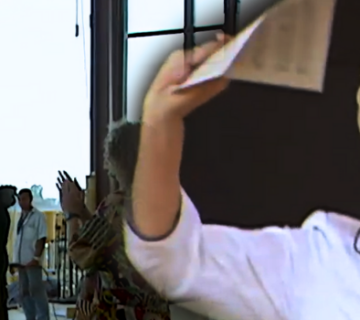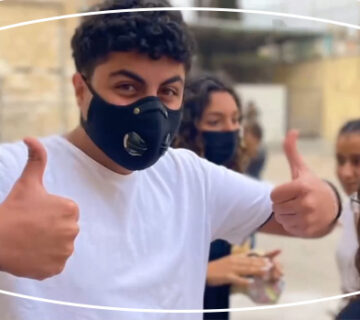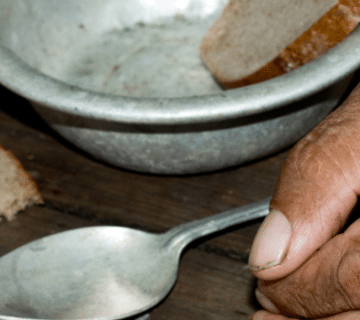I come from the southern province of Colombia, a region of farmers with a strongly individualistic culture, where each one tries in every possible way to escape poverty. The family is not given much importance; one enjoys the company of “friends,” but only a few. God? God is far away.
I too had only one major concern: to get rich. In a place like this, it was easy for me to enter the drug scene. I started working on the plantation, then I joined in small-scale distribution – just the right job for someone who wants to make easy money.
Fortunately my conscience began to bother me. At night I would read the Bible I borrowed from someone, and I realized that what I was doing was completely opposed to what the Bible says. It was during this period of my life that some of my cousins invited me to a youth meeting. There I found something special: the young people wanted to put the Gospel into practice. When I went back to work, I decided to give it a try: I began by changing some of my attitudes. In short I tried to “re-educate” myself, but the point was that I could not continue staying in that circle. My customers tried to convince me that it was only a question of selling medicine and God was out of the picture, because he created us free and we had to earn our daily bread.
I reached the conclusion that the only way to get out of the circle was to leave. Most of the people I knew could not understand my decision, not only because I was letting go of “the best business ever,” but also because my choice exposed me to serious risks: I was defying “the law of the toughest.” But I made it.
I started spending my time for other people by working in public organizations. I got in touch with those young people who wanted to put the Gospel into practice, to see what we could do together for our country. I told them of my desire to live a new life; they then spoke to me of the Economy of Communion. Before, I thought that one had to be rich to be able to give; now I understood that one can also give the little that he has. I organized a group to help other people like me, and we started several activities: a gym, a soccer team, and service projects for the needy. In all this, we tried to break through the barrier of individualism and build up a sense of community and inter-action.
For example, our neighbor’s house burned down. We asked him what kind of help he needed most; he asked for cement to build a water tank. We worked to earn the money, we paid for the cement and gave him the receipt so he could get the cement himself.
There was a father of seven children who could not finish building his house because he had no time. He asked us to get the wood he needed, found along a steep mountain trail, 4 kilometers away. It took us 8 hours straight to do the job, but the man could not stop thanking us for this favor. We also went to a home for the elderly, to bring them farm products.
This is how a chain of sharing began. It makes us feel more united and allows us to overcome old grudges and divisions, giving us a real sense of brotherhood.
(J.S. – Colombia)


 Italiano
Italiano Español
Español Français
Français Português
Português


